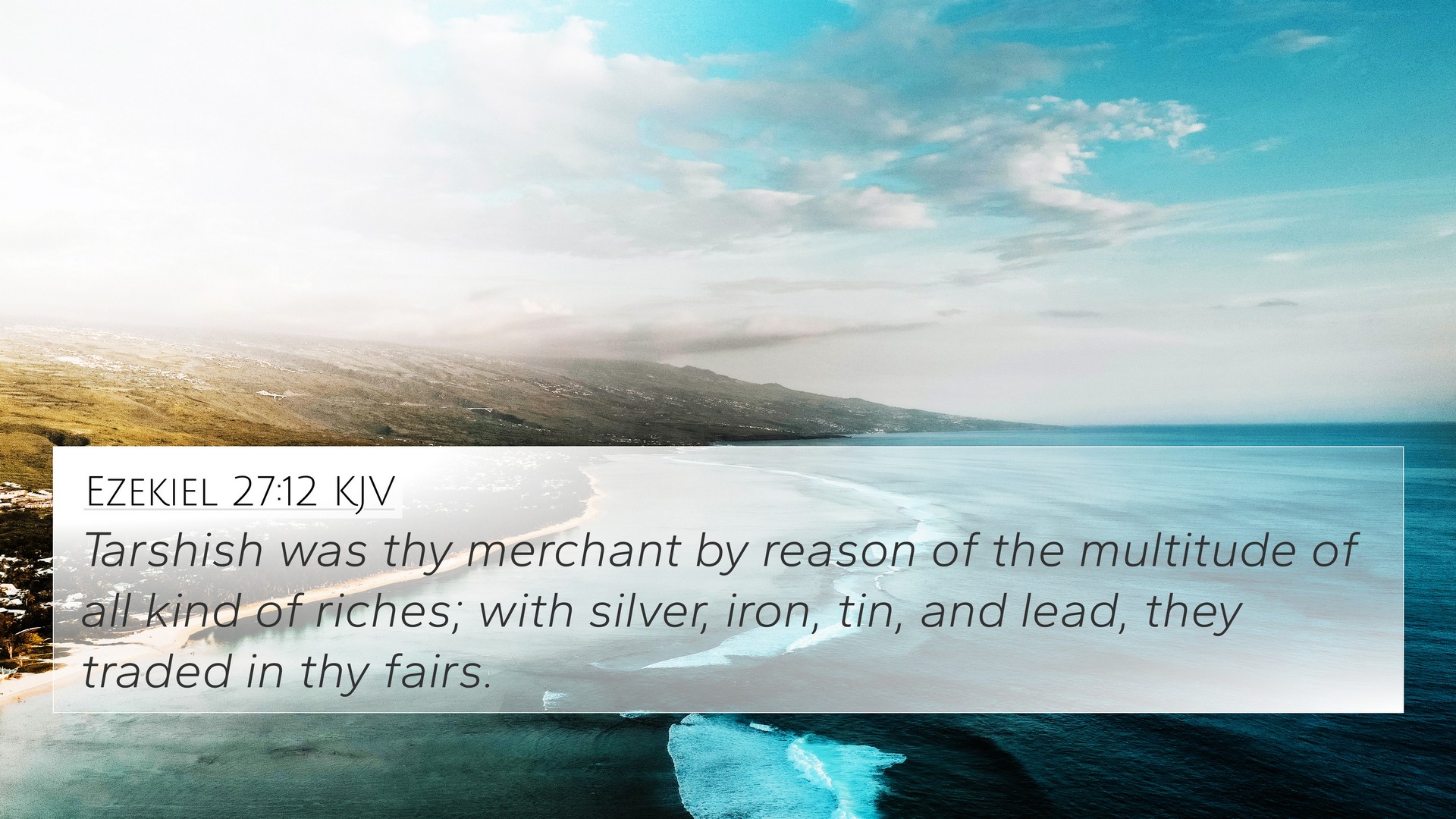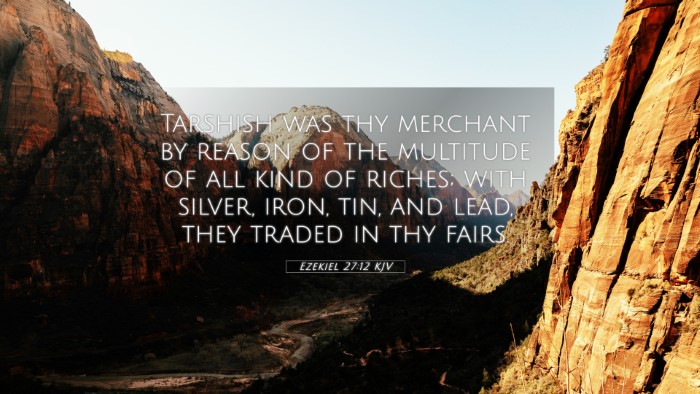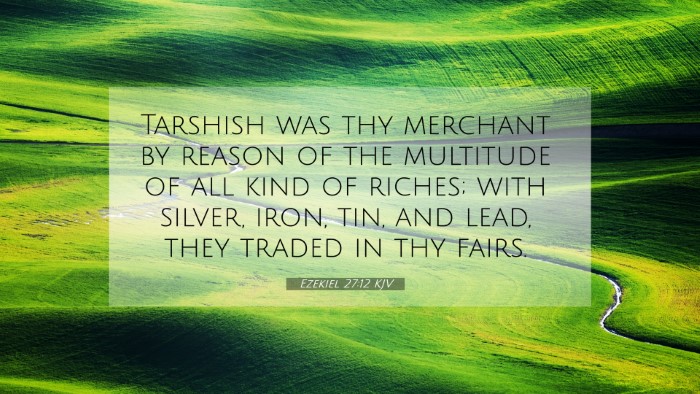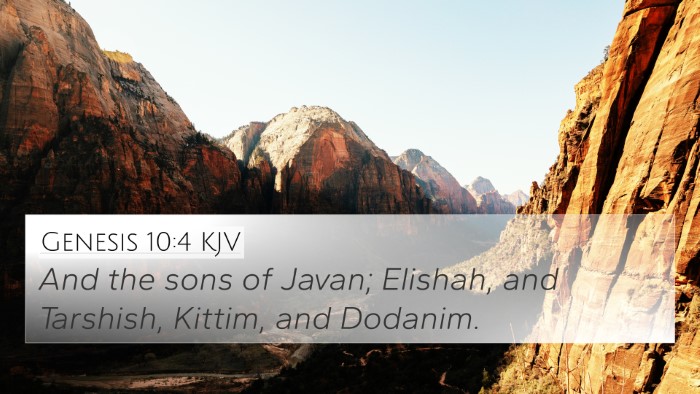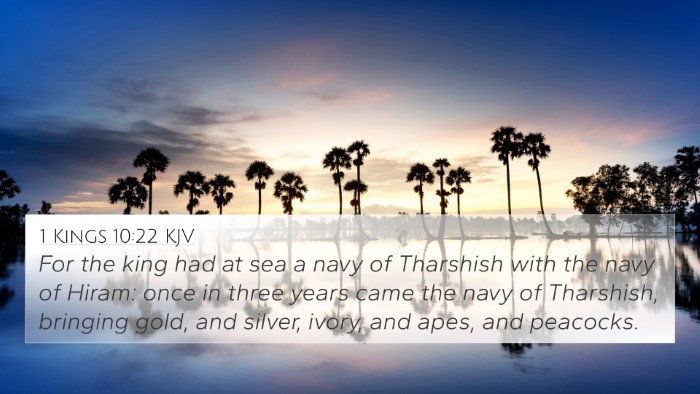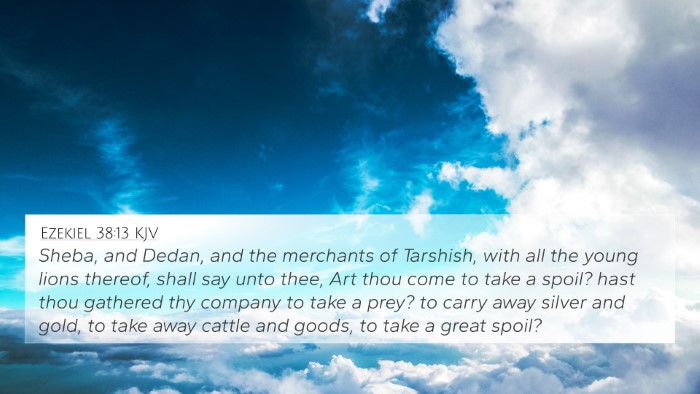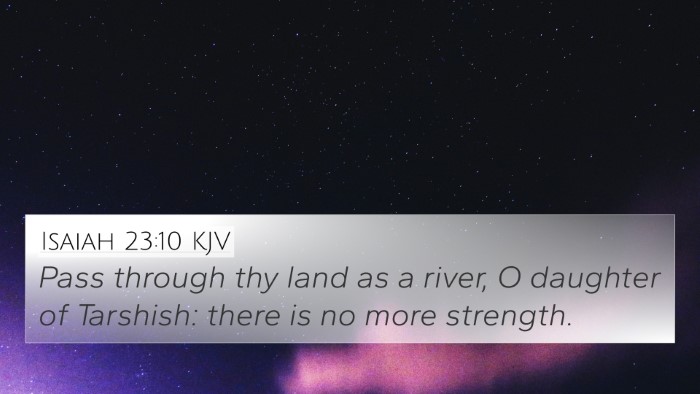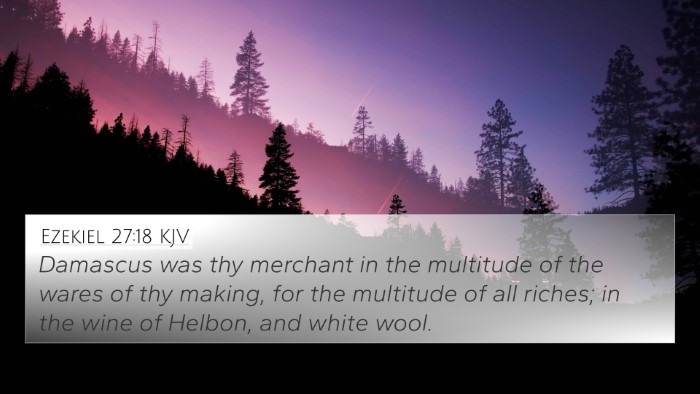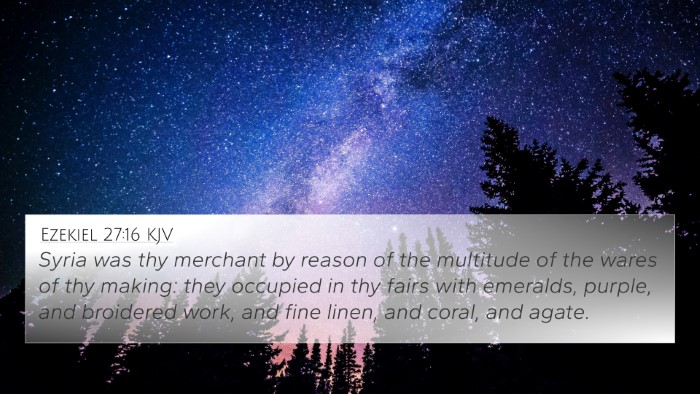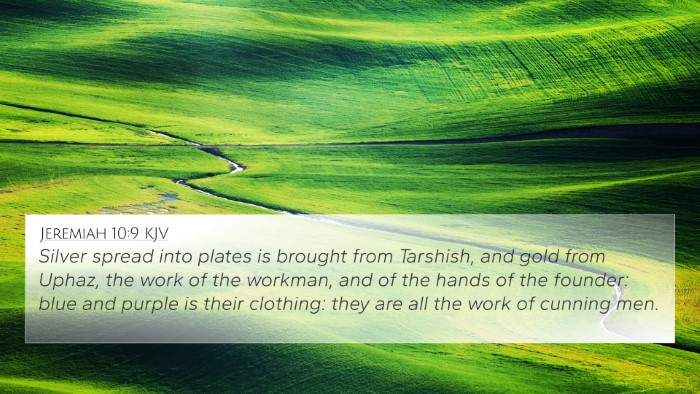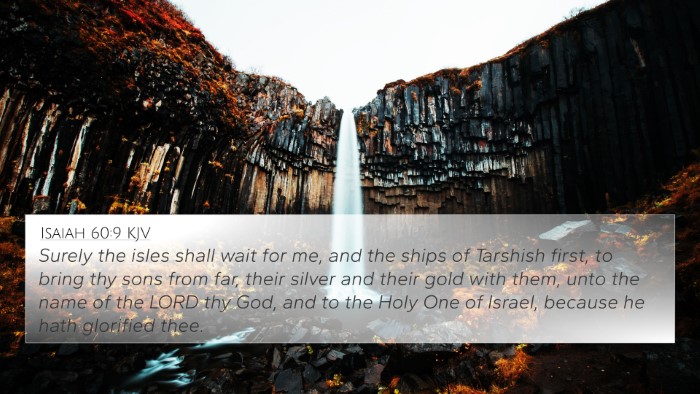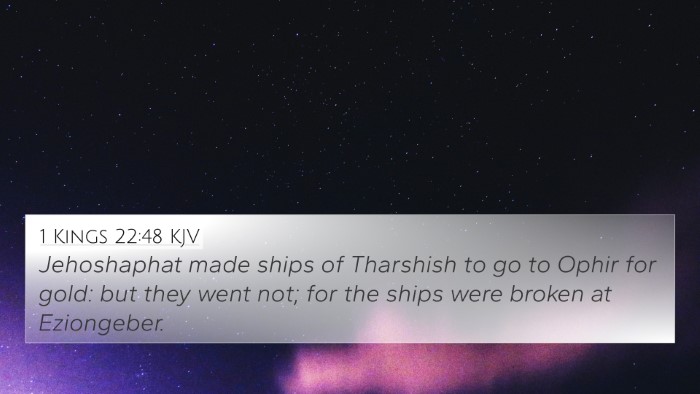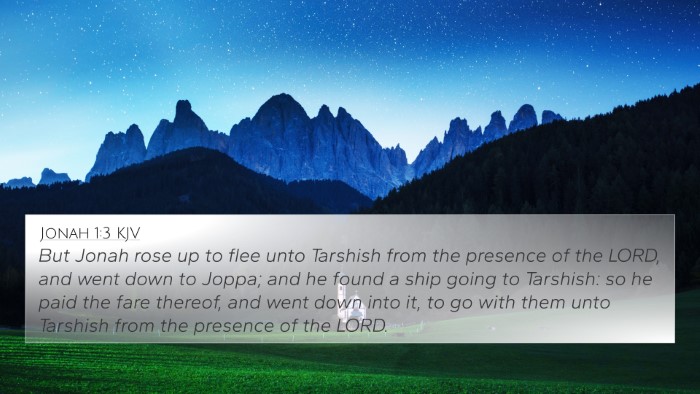Ezekiel 27:12 - Understanding the Verse
The verse Ezekiel 27:12 states:
"Tarshish was your merchant because of your many luxury goods; they gave you silver, iron, tin, and lead for your goods."
Meaning and Interpretation
This verse provides insight into the trade relationships of Tyre, a prominent Phoenician city known for its wealth and commerce. In Ezekiel's time, Tyre was a central hub for trade in the ancient world. The mention of Tarshish emphasizes the far-reaching connections of Tyre and its economic influence.
Commentary Insights
- Matthew Henry: Henry highlights that Tyre’s prominence was due to its trade. He interprets the mention of Tarshish as indicative of Tyre's extensive maritime commerce and affluence, noting that its merchants engaged with distant lands, bringing back valuable materials.
- Albert Barnes: Barnes elaborates on the goods exchanged, pointing out that silver, iron, tin, and lead were significant to Tyre's economy. He emphasizes that this trade relationship signifies not only material wealth but also the political and military strength Tyre gained through commerce.
- Adam Clarke: Clarke reflects on the geographical importance of Tarshish and speculates that this could refer to a location in Spain, known for its wealth. He underscores the idea that Tyre’s prosperity was built upon these lucrative trade relations, which contributed to its eventual downfall as it strayed from God.
Thematic Connections
The verse presents notable themes of commerce, trade, and the consequences of materialism. These themes resonate throughout Scripture and can be cross-referenced with verses that explore similar subjects.
Cross-References for Ezekiel 27:12
- Isaiah 23:1-4: The lamentation over Tyre's fall reflects its glory in trade.
- Ezekiel 28:5: This verse discusses the great wisdom and wealth possessed by Tyre's ruler.
- Revelation 18:11-19: The fall of Babylon echoes the themes of trade and loss, similar to Tyre's fate.
- Proverbs 23:4-5: Warnings against striving for wealth emphasize the temporality of riches.
- James 5:1-3: A call to lament over the miseries coming upon the rich connects to the downfall theme.
- 1 Timothy 6:9-10: The love of money is a root of all evils, paralleling the materialistic tendencies of Tyre.
- Psalms 49:6-8: The futility of trusting in riches highlights the transient nature of wealth.
- Matthew 6:19-21: Jesus teaches about laying up treasures in heaven rather than on earth, linking to Tyre's misplaced priorities.
- Malachi 3:10: The blessings associated with obedience counterbalance the wealth-centric focus of Tyre.
- Ecclesiastes 5:10: He who loves silver will not be satisfied, a notion reflected in Tyre’s endless pursuit of trade.
Comparative Analysis
The study of Ezekiel 27:12 in light of the cross-references provided can lead to deeper insights. When exploring the connections between Bible verses, we often uncover themes of greed, the fleeting nature of material wealth, and overarching divine justice.
Tools for Cross-Referencing
For those interested in further exploring the connections between Biblical texts and themes, the following tools can be invaluable:
- Bible Concordance: A tool that lists words in the Bible and provides their references to help locate interconnected verses.
- Bible Cross-Reference Guide: A resource that highlights verses that relate to each other contextually or thematically.
- Bible Reference Resources: Comprehensive materials that help in the study of thematic connections within the Scripture.
- Cross-Reference System: An organized way to find and study related scriptures to facilitate deeper understanding.
Applying Cross-Referencing
To utilize cross-referencing effectively, consider the following methods:
- Identify Keywords: Use specific words from the verses you are studying to find connections.
- Thematic Studies: Explore themes such as trade, wealth, or justice to find related scriptures.
- Contextual Comparison: Look at how similar themes are addressed in different books of the Bible.
Conclusion
The analysis of Ezekiel 27:12 through the lens of public domain commentaries and thematic cross-referencing reveals intricate layers of meaning related to wealth, commerce, and spiritual lessons. Understanding these connections enriches one’s Biblical study and facilitates a deeper grasp of the overarching narratives within Scripture.
